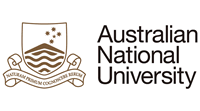Dr S Karuturi
No more applications being accepted
About the Project
Photoelectrochemical (PEC) redox reactions provide an attractive means of harvesting solar energy into storable chemical fuels. We are seeking a PhD student to undertake collaborative research on the design, fabrication and characterisation of photoelectrochemical devices to address one of the most significant challenges for solar fuels: the development of efficient, cheap and stable solar fuel production systems. We are working on a range of projects in this area.
One approach is to leverage recent advances in low cost, high efficiency photovoltaic solar cells for solar water splitting. In this project, silicon and perovskite tandem solar cells will be integrated with earth abundant catalysts to enable stand-alone solar hydrogen production via both PEC and photovoltaic-electrolysis routes.
We are also developing electrocatalysts and semiconductors for converting carbon dioxide to useful chemicals in a selective and efficient manner. These projects involving material synthesis and fabrication, and materials characterisation will focus on promoting innovative design of devices as well as optimisation of the integration of materials and device components. This will be of great significance for both fundamental and technological advances in the development of PEC systems.
Another approach is to use so-called “hot-electrons” to drive reactions. Metal nanostructures can be designed to exhibit strongly absorbing resonances which can generate high energy electrons. If these electrons can be harvested they can be used to selectively drive redox reactions. This project will involve optical design of nanostructures, nano-fabrication, and characterisation of plasmonically enhanced hot-electron PEC devices.
What we offer:
•Tax-free scholarships
•Support for international conferences travel and research visits
•World-class projects and supervision in a dynamic, interdisciplinary environment.
•Access to nanofabrication facilities and state of the art characterisation techniques
Research Environment
The Australian National University (ANU), is one of the top universities in Australia and was ranked 20th globally in the 2018 QS World University Rankings. The Australian National University provides PhD students with a vibrant research community and outstanding program support.
The ANU College of Engineering and Computer Science (CECS) is one of the premier engineering and computer science research institutions in the world. Comprising the Research School of Computer Science and the Research School of Engineering, both are recognised as research leaders in their respective areas continuing the tradition of excellence in research and research-led education.
The group at ANU has international reputation in the development and advancement of solar energy technologies with leading expertise in device design and fabrication, and advanced characterisations. ANU hosts one of the nodes of the Australian National Fabrication Facility (ANFF) which houses state-of-the-art nanofabrication equipment. The student projects will be jointly supervised by Prof. Kylie Catchpole, Dr. Fiona Beck and Dr. Siva Karuturi.
Requirements/qualifications
Applicants must preferably hold a first class Honours degree or Master's degree in Materials Science, Physics, Engineering, or Chemistry. Additionally, applicants must meet the ANU English language requirements.
We are looking for a candidate with the potential to become excellent researchers. The ANU PhD program is very competitive: very few students are accepted each year and many excellent candidates apply. Only the very top students from good universities are generally considered. The links below provide a self-assessment tool if you wish to complete it.
https://cecs.anu.edu.au/study/graduate-research
http://www.anu.edu.au/students/scholarships-support/anu-university-research-scholarships
Women and Australian Aboriginal and Torres Strait Islander people are particularly encouraged to apply.
To apply
Send the following to [Email Address Removed][Email Address Removed]
•A one page cover letter including a statement of research interests and why you want to do a PhD
•Curriculum Vitae
•Copies of transcripts and degrees
Please note only shortlisted applicants will be contacted.

 Continue with Facebook
Continue with Facebook

